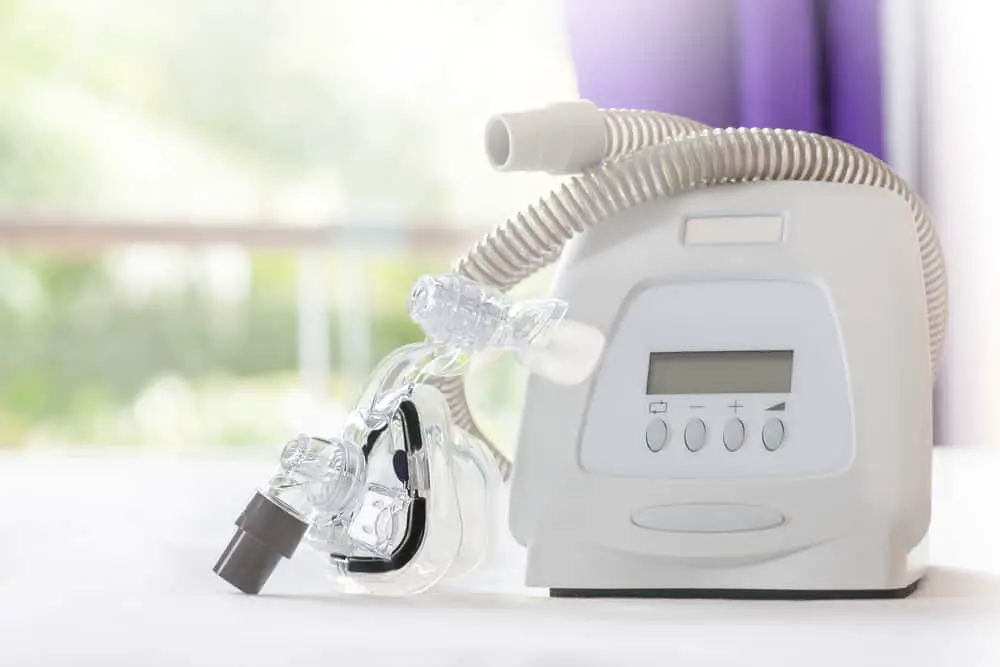Yes, in some circumstances! There have been several studies conducted, all of which appeared to suggest that using a CPAP machine reduces blood pressure a small amount, with the level of change being different in every individual.
It is worth noting that many of the issues that cause people to need CPAP treatment - poor nights of sleep and a lack of oxygen to the brain - are likely to raise blood pressure, so natural BP is not reduced, only the increase caused by sleep apnea.
The fact that between thirty and fifty percent of sleep apnea patients also suffer from high blood pressure is not a coincidence, and there is still much research to be done, but by treating sleep apnea you can effectively treat high blood pressure too.
However, as most sleep specialists will tell you, there has not been enough research conducted to determine whether the use of a CPAP machine and a reduction in blood pressure are positively correlated for everybody.
Although they are continuously being rolled out for use in hospitals, outside of for patients who are suffering from sleep apnea, this does not mean that they are a foolproof and easily obtained fix for unnaturally high pressure.
Therefore, it should not be relied on as one’s sole treatment for high blood pressure, nor should you believe that using a CPAP is going to cure all of your ills. That said, it definitely isn’t going to make the situation worse!
Remember - you can only use sleep apnea treatment after undergoing a sleep study and being prescribed proper treatment. You should never attempt to buy one second hand or use one without having been directly authorized by a professional.
How long does it take for CPAP to lower blood pressure?
That depends! Absolutely everyone with sleep apnea, high blood pressure or both is different and will respond to treatment differently. Unfortunately, the body is a fickle thing, and we can’t predict exactly what it’s going to do at any given time.
It’s also worth noting that, for many, sleep apnea is an affliction that will never go away, so they will be using a CPAP machine for life. Essentially, in order to see a continuous reduction in blood pressure, you have to keep using the machine!
You can’t go on a CPAP machine for a couple of weeks, magically reduce your blood pressure levels and then be cured for life. It’s about a consistent monitoring and treating of issues, on a regular basis, for as long as the problem persists.
Given that sleep apnea usually CAUSES high blood pressure, it’s the sleep apnea itself that you’re trying to treat, not the BP itself. Few people will be offered a CPAP machine solely as a treatment for out of the ordinary blood pressure levels.
However, it is worth noting that the use of a CPAP machine in the case of treating heart failure is becoming a very common treatment, where previously invasive surgeries were the only answer.
Long story short? Using a CPAP once or twice is not going to reduce your blood pressure permanently, just like it wouldn’t cure sleep apnea after only a couple of tries. It’s about regular and persistent treatment that is ongoing, unfortunately.
Why does CPAP lower blood pressure EMS?
In the case of being used as an emergency medical service, a CPAP machine lowers your blood pressure because it is effective at forcing the bronchioles of the lungs to open and allow the body’s oxygen levels to rise, reducing strain on the heart.
Anyone who is experiencing difficulty breathing will be helped by a CPAP machine, because these ‘gaps’ in your normal inhalation and exhalation force your blood pressure to rise, as the brain is busy telling your blood vessels to close up and conserve oxygen for itself and the heart.
By using the continuous positive airway pressure (CPAP) treatment, you are able to ensure that the flow of oxygen into your body is regular enough that there are no ‘gaps’ in your breathing, and therefore your entire body is under less stress.
As a result, the brain does not feel the need to tell your blood vessels to constrict and save up that precious oxygen, which means the blood pressure doesn’t rise, so your natural pressure levels will appear to be lower.
Since many of the previous ventilation treatments that lower blood pressure was invasive and required surgery, CPAP machines provide a safer, less intense way to bring down blood pressure and keep a patient breathing.
If you’re experiencing respiratory distress, it’s likely you’ll be fitted to a CPAP machine rather than an intubated ventilator if it’s safe to do so, as this will be far more comfortable for you in the long run. This is only a development in the last decade or so!

Damon Wiseley is a Registered Respiratory Therapist and Certified Pulmonary Function Technologist.
